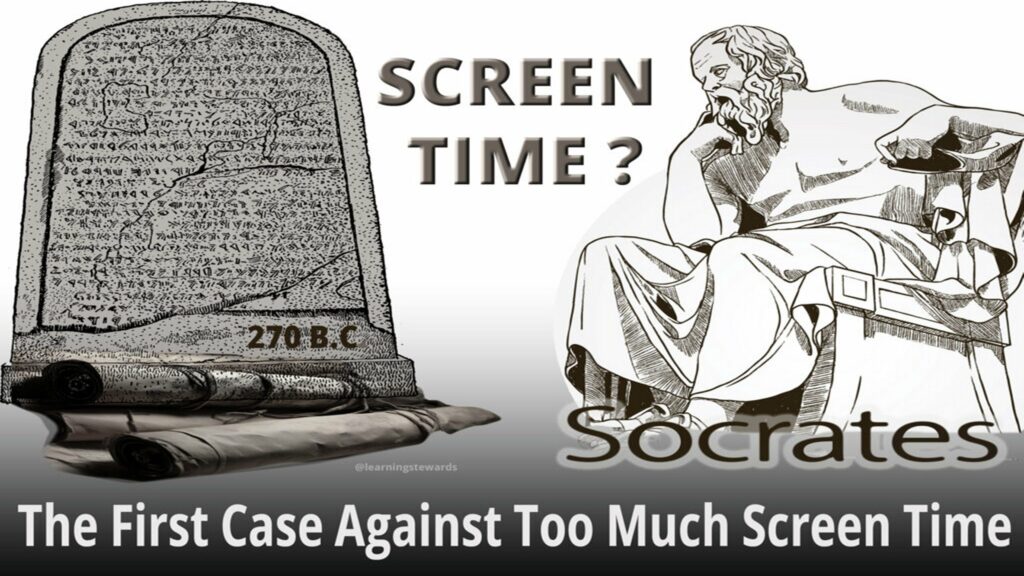
The first person known to argue against screen time was Socrates somewhere around twenty-four hundred years ago. He too was concerned with the unhealthy mental effects of spending too much time using a hot new info tech. But the technology he was concerned about wasn’t digital, electronic, or interactive. Socrates was saying the technology of writing is itself a kind of screen – a technological invention used by minds for mental purposes – that requires uniquely artificial kinds of sustained attentional engagement. The screen could be whatever material someone was writing or reading with, Socrates would translate “screen time” as time spent writing and reading. In his time, from his view, he saw too much time reading as dangerous to our minds.
Socrates* argued that writing was an aid to memory that would weaken our abilities to remember. He thought that we would mistake what we read for what must be personally learned and that the image of wisdom would lead to delusions of wisdom. He wasn’t making a case against the meaning of the material being read, that comes later. He was saying that too much time experiencing meaning through a static information code (a screen) rather through interactive discourse and dialogue was itself harmful to our mental abilities.
Socrates as paraphrasing King Thamus, as Plato describes, in the Phaedrus.
Related










No comments yet.